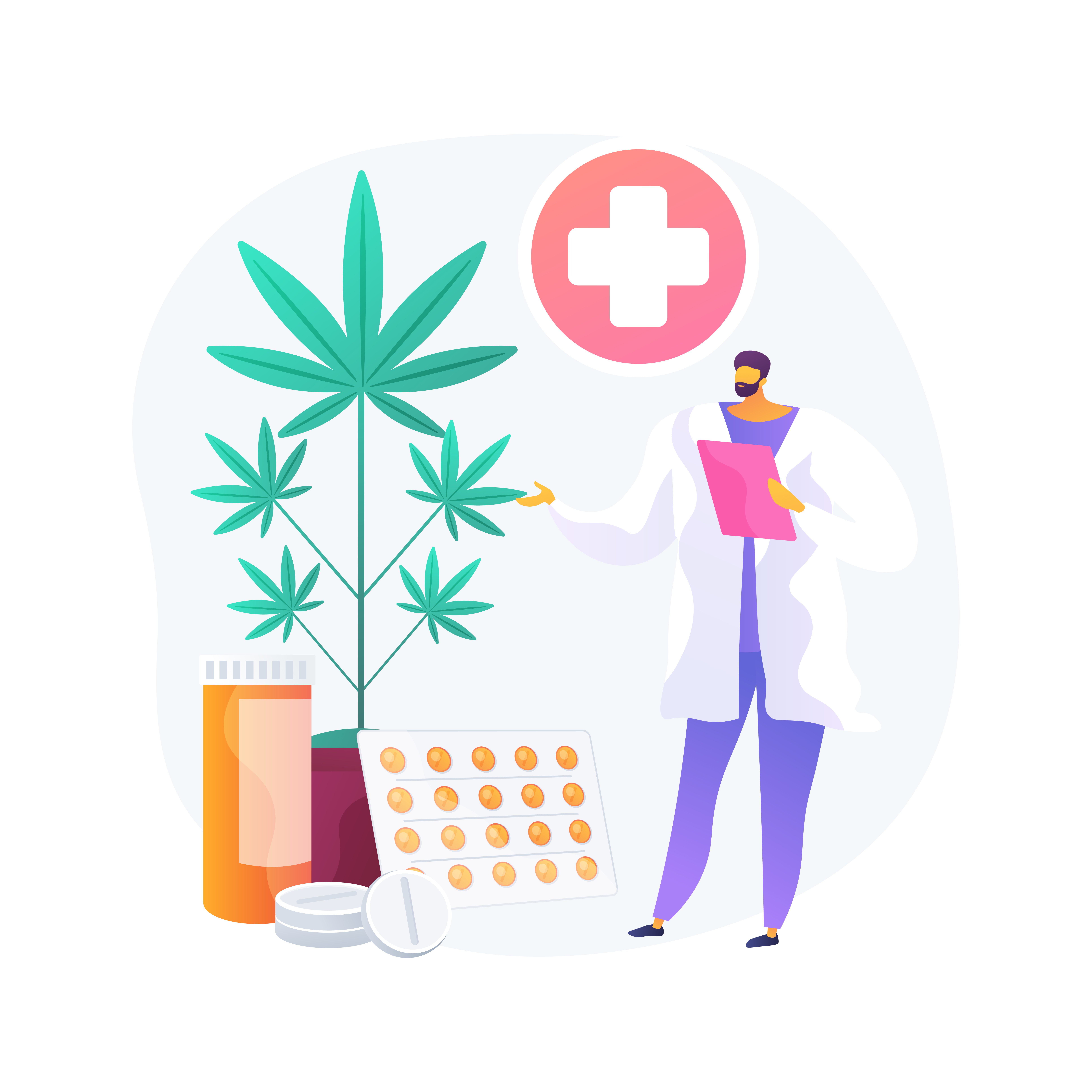Medical marijuana, also known as medical cannabis, is a term that characterizes the use of the cannabis plant and its derivatives to treat medical conditions.
Medical marijuana has become an increasingly popular treatment option for a variety of medical conditions, including pain relief, anxiety reduction and mental health disorders.
However, the use of medical marijuana is still subject to legal restrictions in many parts of the world, and it remains a topic of argument among healthcare professionals, policymakers, and the general public. However, to legally purchase and use medical marijuana in the US, individuals must obtain a medical marijuana card issued by the state. For example in Colorado obtaining a medical marijuana card is a legal requirement for individuals who wish to buy and use medical marijuana for their health conditions. In this article, we will explore the potential benefits and risks of using medical marijuana to treat mental health disorders.
The Therapeutic Benefits of Medical Marijuana for Mental Health Disorders
Anxiety and Depression
- Research has found that medical marijuana may be effective in treating symptoms of anxiety and depression. The cannabinoids in marijuana interact with the body’s endocannabinoid system, which regulates mood, sleep, appetite and has antidepressant properties. This interaction can produce a calming effect on the brain, reducing feelings of anxiety and depression. A study published in the Journal of Affective Disorders found that medical marijuana use was associated with a reduction in symptoms of depression and anxiety in patients with bipolar disorder.
Post-Traumatic Stress Disorder (PTSD)
- Post-traumatic stress disorder (PTSD) is a mental health condition that affects individuals who have experienced or witnessed a traumatic event, such as military combat, sexual assault, or a natural disaster. Medical marijuana has also been found to be beneficial in treating symptoms of PTSD. Studies have shown that the cannabinoids in marijuana can help to reduce symptoms such as severity of flashbacks, anxiety, fear and insomnia. However medical marijuana for PTSD is subject to legal restrictions in many parts of the world. In the United States, for example, medical marijuana is legal in some states but not others, and the use of medical marijuana for PTSD is only approved in certain states.
Bipolar Disorder
- Bipolar disorder is a mental health condition characterized by extreme mood swings, involving periods of mania and depression. Medical marijuana has emerged as a potential treatment option for individuals with bipolar disorder, as the cannabinoids in marijuana, particularly CBD and THC, have been found to have mood-stabilizing properties. A study published in the Journal of Affective Disorders found that medical marijuana use was associated with a reduction in symptoms of depression and anxiety in patients with bipolar disorder.
The Risks of Medical Marijuana Use for Mental Health Disorders
Addiction
- One of the biggest risks associated with medical marijuana use for mental health disorders is the potential for addiction. While medical marijuana is generally considered safe, long-term use can lead to addiction and other health problems.
Intensification of Symptoms
- Medical marijuana use may also exacerbate symptoms of mental health disorders in some individuals. In some cases, marijuana use can lead to paranoia, anxiety, and hallucinations. Individuals with a history of mental health disorders should exercise caution when using medical marijuana.
Lack of Regulation
- Another potential risk of medical marijuana use for mental health disorders is the lack of regulation surrounding its use. While some states have legalized medical marijuana, it is still not regulated by the FDA. This means that the quality and consistency of medical marijuana products can vary widely, which may impact their efficacy.
Obtaining a Medical Marijuana Card for Mental Health Disorders
In order to obtain medical marijuana for the treatment of mental health disorders, individuals must first obtain a medical marijuana card from a licensed healthcare provider. In some states, mental health disorders may qualify as a condition for medical marijuana use, while in others, they may not. It is important to research the laws in your state to determine if you qualify for a medical marijuana card. There are several steps to follow:
Step 1: Check your state’s qualifying conditions
Each state has its own list of conditions that qualify for medical marijuana treatment, and mental health disorders such as anxiety, depression, and PTSD may be included on this list. In Colorado, Arizona, California, for example, mental health conditions that may qualify for medical marijuana treatment include severe anxiety, PTSD, and depression.
Step 2: Have medical recommendation from a healthcare provider
Once you have determined that your mental health disorder qualifies for medical marijuana treatment, you must have medical records and a recommendation from a licensed healthcare provider. This recommendation should state that you have been diagnosed with a qualifying mental health disorder and that medical marijuana may be a beneficial treatment option for your condition. In states such as Arkansas, Delaware, Colorado etc. the recommendation must come from a physician, physician assistant, or advanced practice nurse who is licensed in the state.
Step 3: Apply for a medical marijuana card
After getting a recommendation from a healthcare provider, you must apply for a medical marijuana card with your state’s medical marijuana program. This typically involves submitting an application form, a copy of your recommendation, and any required documentation, such as proof of residency and identification. In Florida you need to pay about 75$ fee for a card but in Colorado, the application fee for a medical marijuana card is $25.
Step 4: Wait for approval
Once you have submitted your application, you must wait for approval from the state’s medical marijuana program. This can take several weeks, and you may be required to provide additional documentation or information during the process.
Step 5: Get medical marijuana products from licensed dispensaries
Once you have received approval for your medical marijuana card, you can legally purchase and use medical marijuana products from licensed dispensaries in your state. In states such as Georgia, Colorado, Alabama etc. medical marijuana products must be purchased from licensed dispensaries and can only be used for the treatment of qualifying conditions, including mental health disorders.
Conclusion
Medical marijuana may offer a variety of therapeutic benefits for individuals with mental health disorders. However, it is important to exercise caution when using it and to consult with a healthcare professional before beginning treatment. Obtaining a medical marijuana card can provide access to safe and legal medical marijuana, but it is important to understand the risks and potential benefits before beginning treatment.
By following the steps outlined above and working with a licensed healthcare provider, individuals with mental health disorders may be able to access high-quality medical marijuana products to manage their symptoms and improve their quality of life.



































